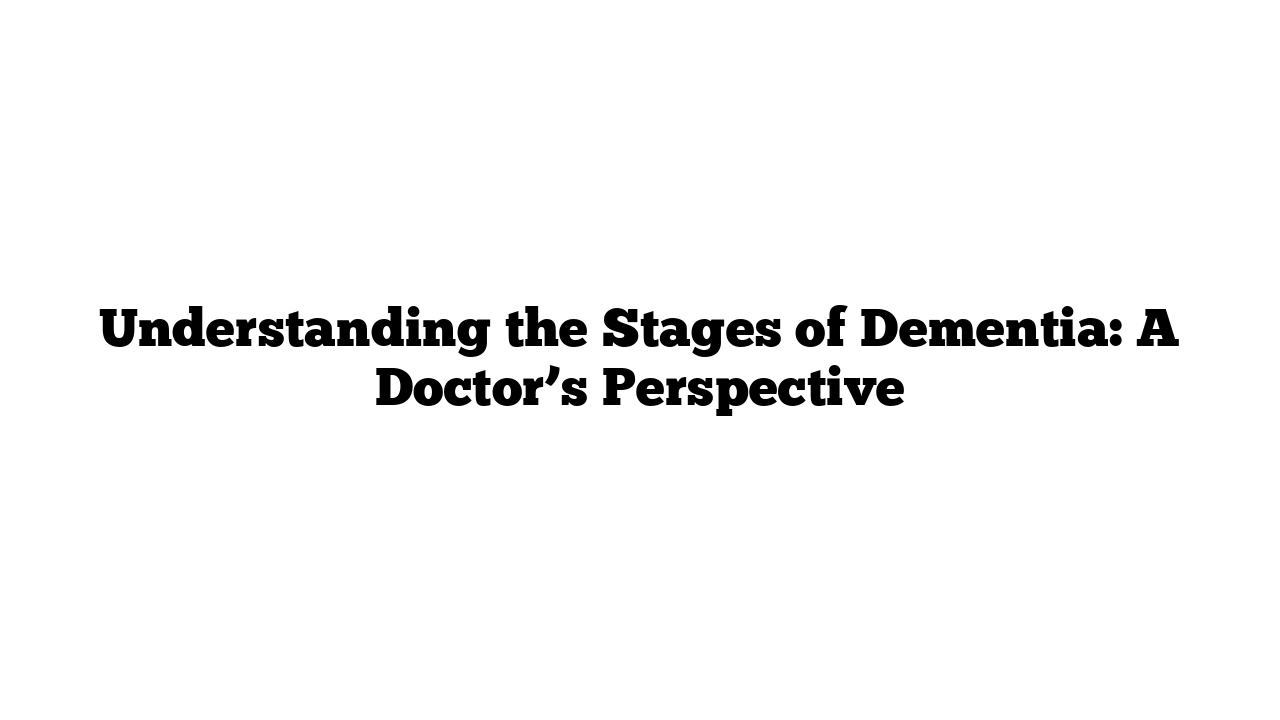Understanding the Stages of Dementia
Dementia affects millions of people in the USA, bringing profound changes not only to those diagnosed but also to their families and caregivers. As a doctor specializing in cognitive health, I aim to provide a detailed yet approachable guide to the different stages of dementia, covering the widely used three-stage model and the seven-stage model.
These models help families, caregivers, and medical professionals understand the progression of dementia. However, it’s essential to remember that dementia doesn’t follow a strict timeline. Each person’s journey is unique, influenced by factors like the type of dementia, general health, and caregiving environment.
Key Concepts to Keep in Mind
Before diving into the stages, here are some critical considerations:
- Dementia is a continuum: Picture dementia as a spectrum, with normal cognition on one end and severe cognitive decline on the other. Movement between stages isn’t always linear or predictable.
- Time in each stage varies: Some individuals progress through stages quickly, while others remain in one stage for years.
- Symptoms are complex: A single symptom (e.g., forgetting a name) doesn’t define a stage. A holistic view of behavior, functionality, and environment is essential for assessment.
The Three-Stage Model of Dementia
This simplified model is commonly used by healthcare professionals to describe dementia’s progression in three main stages:
1. Mild Stage
During this early stage, the person may experience:
- Memory loss: Forgetting recent events or familiar names.
- Personality changes: Subtle shifts in mood or behavior.
- Organizational struggles: Difficulty planning tasks like grocery shopping.
At this stage, the symptoms are often overlooked. Family members might attribute changes to aging or stress. For example, a loved one may lose items frequently or become disoriented while driving.
Care Tips:
- Encourage independence while offering support for complex tasks.
- Monitor changes gently and avoid confrontation if mistakes occur.
2. Moderate Stage
In this phase, symptoms become more pronounced and noticeable:
- Increased confusion: Struggling with daily routines.
- Behavioral changes: Wandering, agitation, or unfounded accusations (e.g., accusing others of theft).
- Hygiene issues: Neglecting personal care.
This is often the most challenging stage for caregivers due to its emotional and physical demands.
Care Tips:
- Establish a structured daily routine to reduce confusion.
- Create a safe environment to prevent wandering.
- Seek support groups to manage stress and exchange advice.
3. Severe Stage
In the final stage, independence is lost entirely:
- Inability to perform daily tasks: Eating, toileting, and mobility become impossible without help.
- Loss of communication: Speech is limited to a few words or sounds.
- Physical decline: Difficulty swallowing, recognizing loved ones, or maintaining basic motor functions.
Care Tips:
- Focus on comfort and quality of life.
- Work closely with healthcare professionals to address medical needs and end-of-life care.
The Seven-Stage Model of Dementia
For those seeking a more detailed framework, the seven-stage model offers an in-depth breakdown:
1. No Cognitive Decline:
The individual functions normally, with no noticeable memory loss or decline.
2. Very Mild Cognitive Decline:
Memory lapses typical of aging occur, such as misplacing keys.
3. Mild Cognitive Decline:
Friends or family may begin to notice issues, such as difficulty finding the right words or misplacing items more frequently.
4. Moderate Cognitive Decline:
This stage often leads to a diagnosis. The person might:
- Forget recent events or personal history.
- Struggle with simple tasks like math.
5. Moderately Severe Cognitive Decline:
Symptoms worsen significantly:
- Assistance is needed for daily activities (e.g., dressing).
- Confusion and disorientation increase.
6. Severe Cognitive Decline:
Memory loss deepens, and personality changes may become more extreme. Recognizing close family members becomes difficult.
7. Very Severe Cognitive Decline:
The final stage involves:
- Minimal or no communication.
- Physical deterioration, including loss of mobility and swallowing issues.
Key Takeaways
- Every journey is unique: Dementia affects everyone differently, making individualized care crucial.
- No single symptom defines a stage: A comprehensive assessment is needed.
- The caregiver’s role is vital: Supporting a loved one through these stages requires patience, understanding, and a solid support network.
Dementia is a challenging condition for all involved, but understanding its progression can help caregivers prepare for what lies ahead. Always consult medical professionals for personalized guidance and resources.
FAQs: Frequently Asked Questions
1. How long does each stage of dementia last?
There’s no definitive timeline. Some people may progress through stages in months, while others may take years.
2. Can dementia symptoms be reversed?
Unfortunately, most types of dementia are progressive and irreversible. However, some treatments may slow progression.
3. Is dementia hereditary?
Certain types, like Alzheimer’s, have genetic links, but not everyone with a family history will develop dementia.
4. What’s the difference between dementia and Alzheimer’s?
Dementia is a general term for cognitive decline, while Alzheimer’s is a specific type of dementia.
5. Can lifestyle changes reduce dementia risk?
Yes! Regular exercise, a healthy diet, mental stimulation, and social engagement may reduce the risk.
6. How is dementia diagnosed?
Through cognitive tests, brain imaging, and medical history assessments by healthcare professionals.
7. What should I do if I suspect my loved one has dementia?
Consult a doctor promptly for an evaluation. Early diagnosis is crucial.
8. Are there medications for dementia?
Certain medications can manage symptoms but won’t cure dementia.
9. How can caregivers manage stress?
Join support groups, practice self-care, and seek professional help when needed.
10. Is hospice care necessary for late-stage dementia?
Hospice care focuses on comfort and dignity during the final stages.
